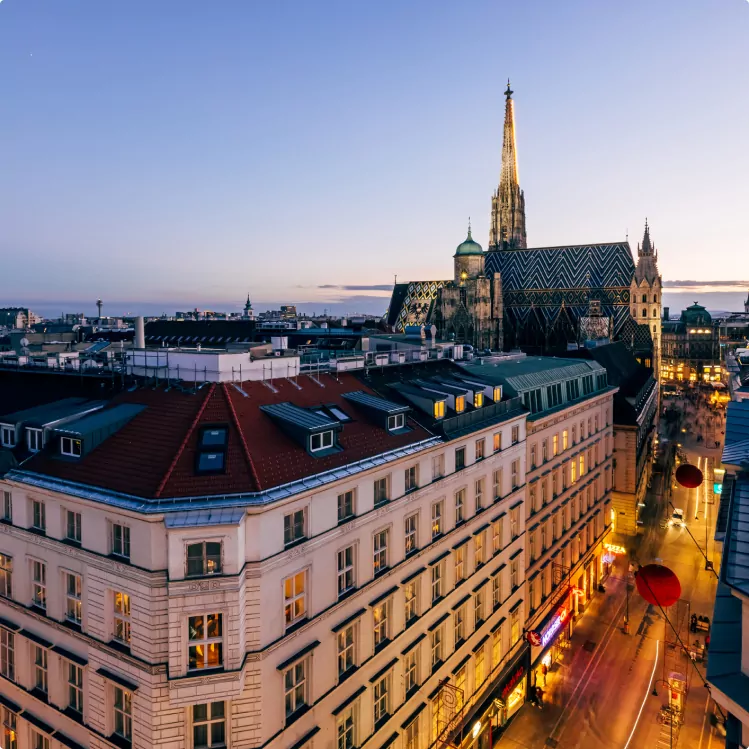History
The Origin of Existential Analysis
Vienna is known as the birthplace of psychotherapy from psychoanalysis (Sigmund Freud) to individual psychology (Alfred Adler) to logotherapy (Viktor E. Frankl). In the 1930s Frankl conceived of existential analysis as the anthropological theory of logotherapy, which was a therapy focused on the will to meaning, and it became known as the third Viennese school of psychotherapy. Frankl worked closely with Austrian psychotherapist, clinical psychologist and existential analyst, Dr. Alfried Längle, who developed the contemporary Viennese School of Existential Analysis.

Contemporary Existential Analysis integrates the meaning-centered therapeutic approach of Logotherapy
Existential Analysis seeks to answer the question: “How do I live a fulfilled life?”
Existential Analysis is a phenomenological and person-oriented psychotherapy, with the aim of guiding a person to a free experience of their life, to make authentic decisions, and to find a truly responsible way of dealing with themselves and the world.
Existential Analysis helps people find and live with inner consent – to say yes to life as the hallmark of a fulfilled existence
Dr. Alfried Längle asserts that existential fulfillment rest upon a four-fold ‘Yes’ to the following questions:
Existential Analysis
Situating Existential Analysis within a Canadian Context
Much of the existential therapy practiced today arises from the continental philosophy of Europe in the 20th century. The zeitgeist that led to the development of this philosophy is vastly different than the current zeitgeist in Canada, although some questions and challenges are similar. Our aim is to expand upon the Viennese tradition by situating Existential Analysis within a Canadian context.
At CIEAL, we strive to acknowledge and honour the local history, native epistemologies, and distinct cultural practices among Indigenous peoples, immigrants, refugees, and settlers who reside in Canada. We reflect on the existential conundrums and questions shaping the place from where we teach and recognize the uniqueness of the suffering stemming from recent events of violence, genocide and cultural appropriation. We strive to engage in a fruitful dialogue with non-Western Indigenous epistemologies about what it means to exist and be human in a specific place and time as a way of upholding the historicity of the place from where we teach.

